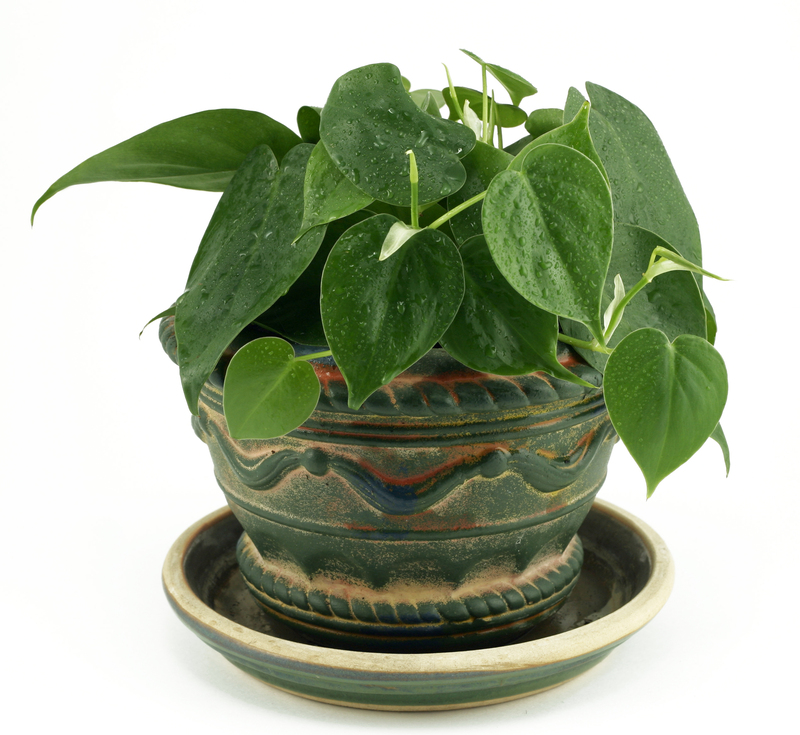Bringing Tranquility Home with Inspiring Zen Gardens
Posted on 04/09/2025
In today's fast-paced world, finding peace and serenity within our own homes is more vital than ever. One transformative way to achieve this inner calm and cultivate a haven of tranquility is by creating a Zen garden. Whether you have a sprawling yard or a cozy balcony, an inspiring Zen garden can invite mindfulness, reduce stress, and nourish your spirit. This comprehensive guide explores how to bring tranquility into your life with captivating Zen gardens, offering practical advice, design inspiration, and deep insights into the philosophy behind these timeless sanctuaries.
What is a Zen Garden?
A Zen garden, or karesansui, which means "dry landscape," originates from traditional Japanese landscaping influenced by Zen Buddhism. These gardens are meticulously designed to recreate the essence of nature using minimal materials such as rocks, sand, gravel, moss, and carefully placed plants. Unlike lush Western gardens, Zen gardens embody simplicity, harmony, and silence--providing an artistic canvas for meditation and contemplation.

The Philosophy Behind Zen Gardens
The heart of an inspiring Zen garden lies not just in its beauty, but also in its philosophical depth. Zen practitioners believe that nature offers powerful teachings about impermanence, balance, and mindfulness. Every element in a Zen garden serves a symbolic purpose:
- Rocks represent mountains or islands
- Sand or gravel symbolizes water, waves, or emptiness
- Moss conveys endurance and stillness
- Pruned trees and shrubs mirror the art of restraint
Through this symbolism, a peaceful Zen garden becomes a living meditation--inviting us to reflect on nature's rhythms and our own state of mind. As you walk through or gaze upon your Zen garden, you cannot help but feel a profound sense of calm and inspiration.
The Benefits of Bringing a Zen Garden Home
Why are so many people embracing the Zen garden concept in their home spaces? Here are some transformative benefits:
- Stress Relief: The serene arrangement of rocks, raked sand, and greenery helps to quiet the mind and release anxiety.
- Enhanced Focus: The process of tending or meditating in a Zen garden encourages mindfulness, clarity, and creativity.
- Minimal Upkeep: Zen gardens emphasize simplicity, often requiring less maintenance than traditional gardens.
- Year-Round Beauty: Many elements, such as sand and rocks, remain beautiful throughout all seasons.
- Customizable: Whether indoors or outdoors, you can design a tranquil Zen garden that fits your space and personal style.
Types of Zen Gardens for Your Home
Not all Zen gardens require large outdoor spaces. In fact, you can bring tranquility home even in the smallest apartment. Here are some inspiring variations:
Traditional Outdoor Zen Garden
Ideal for those with a backyard or a corner of the garden. Features sizable rocks, gravel "rivers," stone lanterns, and perhaps a bamboo fence for privacy and atmosphere.
Mini Zen Garden for Indoors
Perfect for small homes and offices. These desktop gardens feature a shallow tray with sand, a few pebbles, and miniature wooden rakes. A tabletop Zen garden provides an instant stress-relief ritual with minimal investment.
Balcony or Patio Zen Garden
Just a few containers, some pebbles, and a compact water feature can convert your balcony or patio into a serene Zen sanctuary.
Essential Elements for an Inspiring Zen Garden
To capture the essence of a Japanese Zen garden, focus on these traditional elements:
- Rocks & Stones: Large rocks serve as focal points, suggesting mountains or islands. Their placement is crucial--arrange them in odd numbers and irregular patterns for a natural look.
- Gravel or Sand: This symbolizes water. Rake the gravel to create flowing patterns representing waves or ripples, encouraging mindfulness in the process.
- Moss & Greenery: Use moss, ferns, dwarf trees, and simple shrubs to suggest forests or ancient landscapes. Keep plant variety minimal for coherence.
- Bridges and Paths: Stepping stones, artfully placed, offer a physical and symbolic journey toward enlightenment or inner peace.
- Water Elements: While not always present in traditional dry gardens, water features like small ponds or stone basins add to the sense of tranquility.
- Ornaments: Incorporate a stone lantern, pagoda, or simple bamboo spout for an authentic finishing touch.
Steps to Create Your Own Zen Garden at Home
Ready to craft your own peaceful Zen oasis? Follow these steps for a harmonious transformation:
1. Choose the Right Location
Select a spot that invites contemplation and feels protected. It can be a corner of your backyard, a balcony, or even your living room.
2. Decide on the Style and Size
Will you design a minimalist indoor tray, a modest outdoor retreat, or an expansive landscape? The philosophy of Zen celebrates simplicity, so start small if in doubt.
3. Gather Your Materials
- Rocks in various sizes and shapes
- White, grey, or tan gravel or sand
- Wooden rake (mini or full-sized, depending on garden size)
- Moss, bamboo, or compact calming plants
- Optional: stone lantern, water bowl, or bench
4. Arrange the Rocks and Stones
Start by placing the largest stones first--these anchor your garden visually. Group rocks in odd numbers (often groups of three or five). Vary the orientation and avoid symmetry for a more organic, meditative feel.
5. Add Gravel or Sand
Spread a layer of gravel or sand around your rocks. Use a rake to form gentle flowing lines, spirals, or concentric circles. Each day, try raking a new pattern--this act is both meditative and creative.
6. Introduce Plants and Moss
Moss is a classic choice, but low-maintenance plants such as ferns, dwarf bamboo, or hardy ground covers work well. Choose greenery that thrives in your climate or indoor environment.
7. Incorporate Finishing Touches
A stone lantern, water basin, or simple sculpture can provide a focal point for meditation. If indoors, consider adding a small fountain for a soothing water sound, enhancing your Zen garden ambiance.
Tips for Maintaining Your Zen Garden
Once you've created your tranquil Zen garden, a few mindful routines will help keep it serene and inspiring:
- Regular Raking: Refresh the gravel patterns as a daily or weekly meditation.
- Weed Control: Keep moss and groundcovers healthy by gently removing unwanted weeds.
- Maintain Ornaments: Keep stone lanterns, water bowls, and bamboo fences clean and free from debris.
- Trimming Plants: Prune shrubs and trees for shape, reinforcing the principle of simplicity.
- Seasonal Adjustments: Add new elements, such as fallen leaves or flowers, to celebrate the changing seasons and maintain harmony.
Incorporating Zen Garden Principles Beyond the Garden
The beauty and tranquility of a Japanese Zen garden can inspire other areas of your home and lifestyle:
- Calm Colors: Use a restrained palette of whites, greys, browns, and greens throughout your home for a Zen-inspired ambiance.
- Simple Furnishings: Choose clean lines, natural materials, and clutter-free designs to echo the clarity of a Zen garden.
- Mindful Practices: Create dedicated meditation or yoga corners, using items like stone sculptures, bamboo mats, or a desktop Zen garden.
- Water Elements: Install a tabletop water fountain or a simple stone bowl to add the soothing sounds of flowing water indoors.
Common Questions about Creating a Zen Garden
Do Zen gardens have to be large?
Not at all! Many inspiring Zen gardens thrive in small spaces. Compact indoor Zen tray gardens or balcony rock arrangements can offer as much tranquility as larger outdoor installations.
What is the best location for a Zen garden?
Any place where you can pause and enjoy stillness is ideal. Zen gardens often favor quiet, lightly shaded spots protected from harsh elements, but they can adapt to almost any context.
What plants work best in a Zen garden?
Mosses, ferns, bamboo, and evergreens are traditional. The key is restraint and simplicity--choose just a few harmonious varieties rather than a crowd of different species.
Is maintenance difficult?
One reason Zen gardens are so popular is their low-maintenance nature. Regular raking, occasional pruning, and light cleaning are typically all that's needed.

Inspiring Zen Garden Ideas for Every Home
- Japanese Rock Island: Feature a cluster of large stones surrounded by raked gravel, inviting quiet contemplation.
- Bamboo Zen Retreat: Build a shaded nook with bamboo screens, a stone bench, and a tray filled with white pebbles.
- Water & Sand Harmony: Combine a small pond with raked sand and mossy stones to blend the elements of water and earth.
- Desk Zen Sanctuary: Place a mini Zen sand garden on your work desk or bedside table for instant relaxation.
- Pathway Zen Display: Line a garden path with stones and moss, finished with a bamboo fountain for a peaceful welcome.
Conclusion: Embrace Tranquility with Your Own Inspiring Zen Garden
Creating a Zen garden at home is more than a landscaping project--it's an invitation to infuse every day with peace, beauty, and mindful awareness. With a handful of carefully chosen materials and a spirit of simplicity, you can design a space that brings tranquility, inspiration, and intentional moments of joy into your daily life. Whether it's a grand outdoor sanctuary or a tiny desktop oasis, your very own Zen garden is the perfect pathway to balance, calm, and a more harmonious home.
Begin your Zen garden journey today and discover how a touch of ancient wisdom can transform your modern life into an oasis of tranquility.
Latest Posts
The Art of Building a Playful and Safe Garden for Children
Discover the Secret to Weed-Free Gardens with 3 Tips
Ignite the Spark: Starting the Neglected Garden Overhaul

